Archives Hub feature for September 2020
The Save the Children (SCF) archive, held at the Cadbury Research Library, University of Birmingham, charts the development of the charity from its creation in 1919. The collection includes a wealth of material relating to the charity’s founder, Eglantyne Jebb, and these papers provide a fascinating insight into how SCF operated during the 1920s. They also highlight the personal stories of individuals associated with SCF.
Concertina comic strips
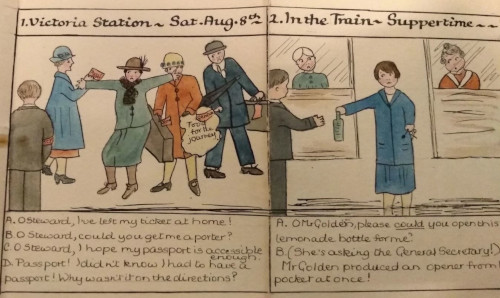
One fascinating item is a wonderful illustrated concertina comic strip created by Corinne de Candole, documenting her first week working at the SCF office in April 1925. She dedicated the strip to ‘Miss Jebb who showed me how the New World is being built at the Office of the Save the Children Fund’. The strip depicts Corinne’s interview with a Mrs Beach, as well as the making of blue cloaks and flags and ‘planning for the new world’.
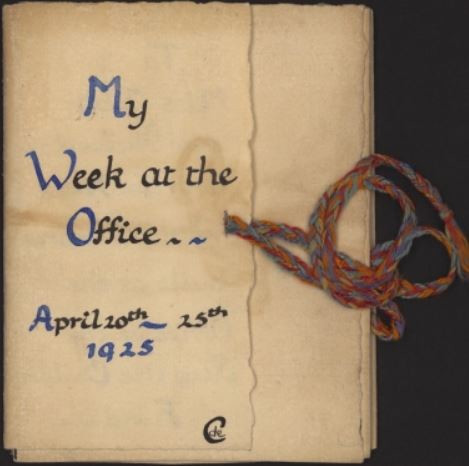
Another two comic strips reveal how Corinne travelled to Geneva for the summer school in 1925 and she also wrote two poems about this experience: ‘The Disobedient Lady who never got to the SCF Summer School’ and ‘The Obedient Lady who went to the SCF Summer School’. Through these documents we can sense the pride with which Corinne felt for working for SCF and her thoughts on how it was helping change the world.
Thank you letters
The overseas country papers in the Eglantyne Jebb series highlight the personal stories of those affected by the crisis in Europe after the First World War. The Horak family, from Hungary, wrote a letter of appreciation to SCF, offering thanks and remembering their benefactors.
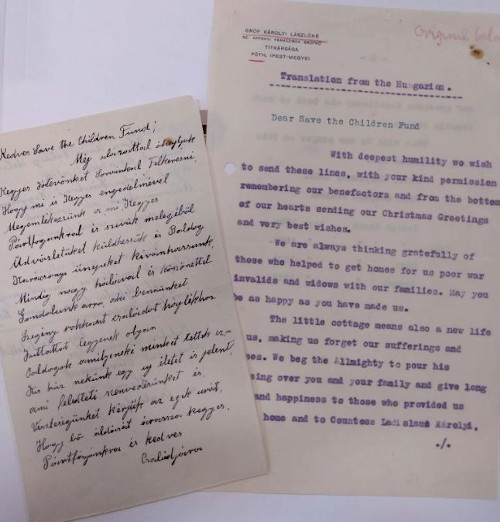
‘From the bottom of our hearts sending our Christmas Greetings and very best wishes [and] we are always thinking gratefully of those who helped to get homes for us poor war invalids and widows with our families. May you be as happy as you have made us […] The little cottage means also a new life to us, making us forget our sufferings and losses. We beg the Almighty to pour his blessing over you and your family and give long life and happiness to those who provided us with a home. This will be our prayer on this holy Christmas eve.’
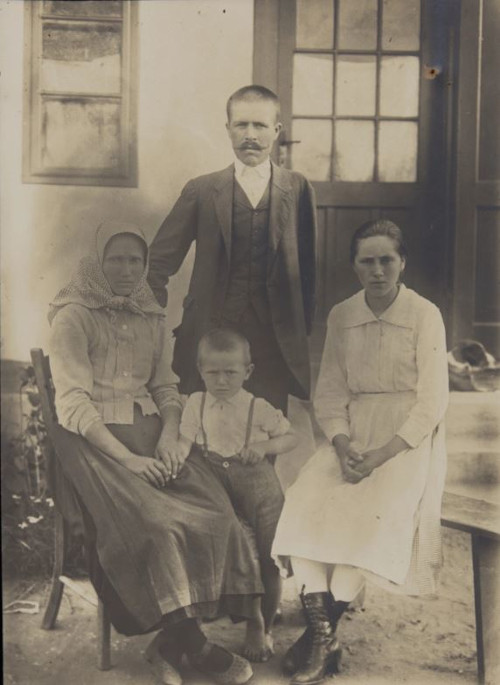
In a letter to Miss Vulliamy, who was leading SCF funded projects in Poland, Vera Staack describes how her mother, and herself, had to flee Russia due to the Bolsheviks: ‘But why are they frightened, why do I read such terror in their eyes? I shall explain you the reason. The red banner flashes, and on it the black words which make everybody tremble. “Death to the bourgeois.”…..The fathers or mothers are taken from their children, children are torn from their parents sides. And so everybody tries to hide quickly.’
‘The picture of the past rises involuntary before me. Christmas Eve! It was our last Christmas Eve in our native land-in far off Moscow. An enormous Christmas-tree made dazzlingly brilliant by quantities of electric lamps and brilliant ornaments and many, many presents…..And all this has been taken from me by the Bolsheviks. Dear Miss Vulliamy, and I shall have no more Christmas-trees or Christmas Eves, and mother is always very cross now, cries often, and wishes to speak to no one. She was quite different before.’
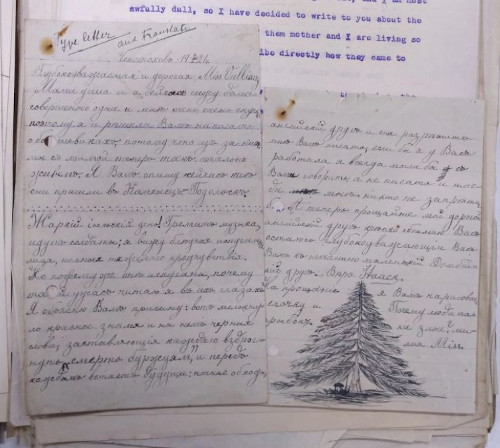
‘And now good-bye, my dear, dear English friend. I hug you very hard and remain your very respectful and unhappy little Domby friend
She ends ‘P.S. Why are men so wicked, dear Miss Vulliamy.’
A seaside holiday
Another example can be found in a report entitled ‘A seaside holiday’, written by M. Brown, where we learn of the impact that a trip to the beach had for a group of young children: ‘“Who pushes the sea?” Is water never still?” “Does sand bite?” […] even the Ukrainian student was among the unbelievers who doubted whether the sea was salt, and made a wild dash to stoop down and taste it to make quite sure that he was not being deceived.’
The children then share their stories of the horrors that they have been through: ‘that was a long time ago…my mama died in the truck on the way from Russia. She died of hunger my mama did not live long after my daddy was killed by the Bolshevists. I wouldn’t believe it at first when the doctor came round and bent down and listened to her heart and said that mam was dead.’
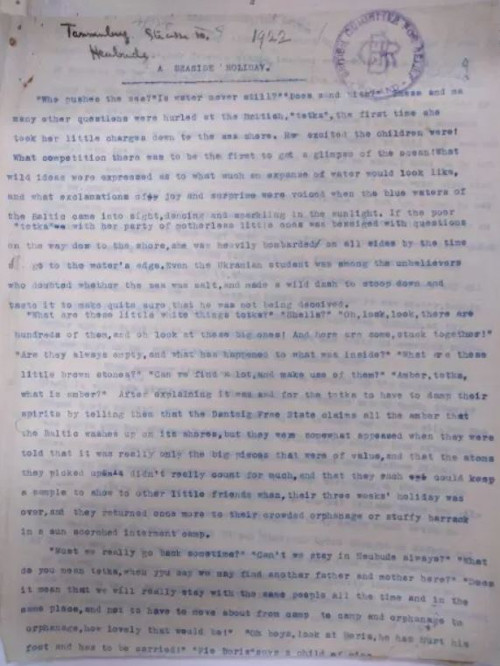
‘All the children have their own sad story, and all have lived through strange and dreadful times, and in all their young faces can be read the tragedy of the homeless and the outcast. It is to build up their energy for the life struggle before them that Miss Vulliamy inaugurated the Children’s Holiday Home at Danzig in 1922.’
These archives offer a glimpse into the traumatic events which children and families faced in the aftermath of the First World War, the attempts by SCF to help and the appreciation that this generated.
Matthew Goodwin
Save the Children Project Archivist
Cadbury Research Library, University of Birmingham
Related
Browse all Cadbury Research Library, University of Birmingham descriptions available to date on the Archives Hub.
All images copyright Cadbury Research Library, University of Birmingham. Reproduced with the kind permission of the copyright holders.
